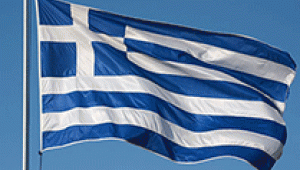The rescue package included three bailouts worth €288.7bn – the largest amount ever dispersed by international creditors, which will take the country decades to repay.
The European commissioner for economic and financial affairs Pierre Moscovici said that Greece could now become “a normal” member of the single currency after eight “very difficult” years.
“We have had eight very difficult years, often very painful years, where we have had three successive programmes. But now Greece can finally turn the page in a crisis that has lasted too long,” he told journalists.
“The worst is over.”
The last €61.9bn was granted in 2015 by the European Stability Mechanism, set up by eurozone states as a result of the financial crisis, in support of the Greek government’s efforts to reform the economy and recapitalise banks.
Mário Centeno, the chair of the ESM, said: “It took much longer than expected but I believe we are there.
“Greece’s economy is growing again, there is a budget and trade surplus, and unemployment is falling steadily.”
The bailout began in 2010, when eurozone states and the IMF came together to provide the first €20bn injection to help Greece.
Cuts to public spending, which was a condition of the bailout, are set to continue as the country’s debt, unemployment and poverty rates remain a problem.
But for the first time since the crisis eight years ago, Greece can now borrow at market rates.
The IMF was more sceptical earlier this month and said that Greece should be realistic about its economic goals to ensure “long-term stability”, which “remains uncertain”.
The economy has grown slowly in recent years and is still 25% smaller than when the crisis began.
EU officials said that Athens will still face more checks than any other eurozone member, so Brussels can monitor whether the government’s budgets are in line with EU stability and growth targets.
Greece has the highest level of debt in the bloc, 177% of gross domestic product, and is forecast to be repaying loans until 2060.
The ESM had been prepared to provide a further $23bn to Greece but said, in the end, the country had not needed to request it.
Donald Tusk, president of the European council, said on Twitter: “You did it! Congratulations Greece and its people on ending the programme of financial assistance. With huge efforts and European solidarity you seized the day.”
You did it! Congratulations to Greece and its people on ending the programme of financial assistance. With huge efforts and European solidarity you seized the day.
— Donald Tusk (@eucopresident) 20 August 2018







